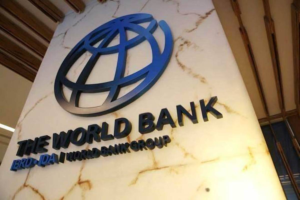World Bank approves about Rs. 3,717.28 crore loan programme to support India
The World Bank on Wednesday said it has approved a $500 million (about Rs 3,717.28 crore) loan programme to support India’s informal working class to overcome the current pandemic distress.
Of the $500 million commitment, $112.50 million will be financed by its concessionary lending arm International Development Association and $387.50 million will be a loan from International Bank for Reconstruction and Development (IBRD). The loan has a maturity period of 18.5 years including a grace period of 5 years. 
The bank said its total funding towards strengthening India’s social protection programmes to help the poor and vulnerable households since the start of the pandemic currently stands at $1.65 billion (about Rs.12,264.54 crore).
The first two operations approved last year provided immediate emergency relief cash transfers to about 320 million individual bank accounts identified through pre-existing national social protection schemes and additional food rations for about 800 million (80 crores) individuals, World Bank said.
States can now access flexible funding from disaster response funds to design and implement appropriate social protection responses. The funds will be utilised in social protection programmes for urban informal workers, gig-workers, and migrants, it said.
Junaid Ahmad, World Bank Country Director in India stated that investment in social protection is aimed at building the resilience of economies and livelihoods of communities, in a context where countries are increasingly facing cycles of economic, pandemic, and climate shocks.
A National Digital Urban Mission will create a shared digital infrastructure for people living in urban areas through investments at the municipal level to help scale up urban safety nets and social insurance for informal workers. It will also include gender-disaggregated information on women workers and female-headed households.
This will allow policymakers to address gender-based service delivery gaps and effectively reach the unreached, particularly widows, adolescent girls, and tribal women.




